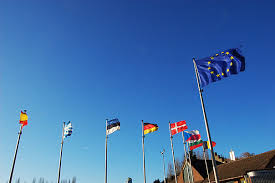EU's Gentiloni says expects tussle over EU budget veto to be resolved
Budapest and Warsaw vetoed the adoption of the 1.1 trillion euro 2021-2027 EU budget and the 750 billion euro Recovery Fund on Monday because the budget law included a clause which makes access to money conditional on respecting the rule of law. Gentiloni told the Italian parliament the German EU presidency was working to resolve the dispute and there were "very robust reasons" to expect it would be successful.

- Country:
- Poland
European Economics Commissioner Paolo Gentiloni said on Tuesday he expected a positive solution to Poland and Hungary's blockage of the EU's 1.8 trillion euro ($2.14 trillion) financial package to revive the bloc's COVID-hit economy. Budapest and Warsaw vetoed the adoption of the 1.1 trillion euro 2021-2027 EU budget and the 750 billion euro Recovery Fund on Monday because the budget law included a clause which makes access to money conditional on respecting the rule of law.
Gentiloni told the Italian parliament the German EU presidency was working to resolve the dispute and there were "very robust reasons" to expect it would be successful. The former Italian prime minister said he was concerned that the tussle could delay the effective launch of the Recovery Fund but it was still on schedule at the moment, and he preferred not to consider any "plan B".
He said Poland and Hungary "are among the biggest beneficiaries" of the EU budget and are also suffering a heavy impact from the coronavirus and therefore had no economic interest in blocking the EU's plans. In other remarks, Gentiloni said the EU's Stability Pact would remain suspended for as long as the bloc's economy is in "severe economic difficulty", and certainly throughout 2021.
He said countries with high public debts must not be penalised or prevented from adopting the expansionary policies necessary to tackle the recession caused by the epidemic, but debts would need to be reduced in the medium term. The best way to do this would be part of the EU's new budget rules which are currently being worked on, he added.
(This story has not been edited by Devdiscourse staff and is auto-generated from a syndicated feed.)










